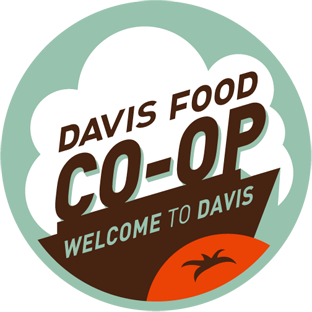Since 1880, Earth’s temperature has risen by 0.14° Fahrenheit per decade, increasing to more than twice that (0.32° F) per decade since 1981. Each of us sees and feels the effects of climate change nearly every day with BIPOC, low income, and migrant communities feeling the effects more deeply. Co-ops offer a path forward. The cooperative business model, a solution that is tried and tested, addresses climate change while also confronting inequality, advancing democracy, building resilient economies, and confronting poverty.
Since it’s Co-op Month, we’d like to explore ways in which co-ops are climate leaders and how our co-op addresses environmental sustainability.

WHY Co-ops?
We’re not just bragging; co-ops are special. At the most basic level, cooperative businesses serve the needs of their Owners, whatever those needs might be, rather than delivering profit to investors. All cooperatives follow the 7 Cooperative Principles which serve as the model’s code of ethics. Let’s look at how these Principles affect the fight against climate change.
| 1. Voluntary and open membership |
|
| 4. Autonomy and independence |
|
| 5. Education, training and information |
|
| 7. Concern for community |
|

Co-ops know how to plan for the long term
Cooperative businesses have no requirement for delivering short-term profits other than remaining commercially viable, which allows them to better plan for the long term. Co-ops are more likely to consider intergenerational solutions to climate change.
Co-ops are the most resilient form of enterprise
Co-ops survive, often finding creative solutions, when other businesses would simply close. As a result they are more stable businesses in communities. Stability and resilience will be key in communities increasingly affected by extreme weather. Similarly, co-ops establish their own supply chains which further insulate their communities from market shocks.
What does this look like at the Davis Food Co-op?
“The production, transportation, sale and consumption of food are significant contributors to global climate change and the degradation of our collective land, air, and water resources. For this reason, it is incumbent upon DFC to become a local leader in sustainability and environmental stewardship.” – Davis Food Co-op Strategic Plan

As laid out by the Co-op’s Board of Directors in the Strategic Plan, Strategic Priority #5 is “Be a Model for Environmental Sustainability.” Together our Board and General Manager work to implement changes in store to meet these priorities. Here are just a few ways the Strategic Plan made the co-op more sustainable.
| Energy |
|
| Water |
|
| Greenhouse Gas Emissions |
|
| Plastic |
|
| Organic Waste |
|
| Landfill Waste |
|
| Recycling |
|

In addition to baking sustainability into our co-op’s Strategic Plan, Ends, and Principles, our staff, owners and shoppers are, let’s say, deeply passionate about the survival of the planet.
The DFC will continue to implement changes which make the store and our community more sustainable.
